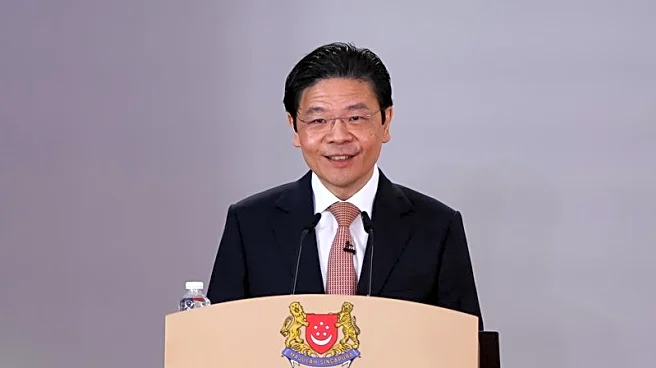What is the story about?
What's Happening?
Recent social media rumors have falsely claimed that American taxpayers will receive a new round of federal stimulus checks in late 2025, with amounts ranging from $1,390 to $2,000. These claims have been debunked by the IRS and Congress, which have not authorized any new stimulus payments for 2025. The IRS has confirmed that no new checks will be issued in October 2025, and any such claims are false. The rumors have been linked to speculative proposals by political figures, including President Trump's discussions of tariffs and a proposed 'DOGE dividend,' but these remain unsubstantiated. The only related legislative proposal is Senator Josh Hawley's American Worker Rebate Act, which has not been passed by Congress.
Why It's Important?
The spread of misinformation regarding federal stimulus checks can lead to public confusion and potential scams. The false rumors may cause individuals to expect financial relief that is not forthcoming, impacting personal financial planning. Additionally, the persistence of these rumors highlights the need for clear communication from government agencies to prevent misinformation. The situation underscores the importance of relying on official sources for information about government payments. The lack of new federal stimulus checks also reflects the current economic policy stance, focusing on state-level relief efforts rather than nationwide cash payments.
What's Next?
As no new federal stimulus checks are planned, individuals should be cautious of scams and rely on official IRS and government websites for accurate information. State-level relief efforts may continue, with some states offering one-time rebates or tax credits. The political landscape may see further discussions on economic relief measures, but any new federal payments would require congressional approval. Stakeholders, including policymakers and financial advisors, will likely continue to monitor the situation and provide guidance to the public.
Beyond the Headlines
The viral spread of false information about stimulus checks highlights broader issues of misinformation in the digital age. It raises questions about the role of social media platforms in curbing the dissemination of false claims and the responsibility of users to verify information. The situation also reflects ongoing economic challenges faced by many Americans, driving the demand for financial relief and the susceptibility to rumors promising such aid.
















